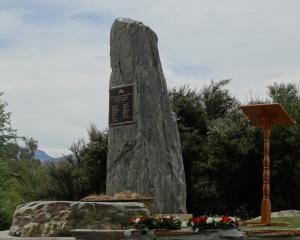It was resolved that Mr Anscombe be asked to prepare the plans and specifications for this work, after consultation with Professor Boys Smith.
Professor Park wrote, on August 22, submitting a report on the proposal to make Tanna Hill available as a building site.
It was resolved that Mr Walker be asked to approach the city authorities and discover if they are prepared to remove material.
Mr Fergus stated that the tenders for the hostel had been received, and had been found to be so far in excess of the money at the disposal of the committee that the committee recommended that the tenders be referred back to see whether the cost could not be cut down.
A clause to this effect was added to the report, which was then adopted.
The Home Science Special Committee recommended as follows:
1. That the question of which students would be required to live at the hostel should be reported on by the Home Science Faculty, and that Professor Boys Smith submit to the faculty a memorandum bearing on the matter.
2. That the charge to resident students be 1 per week.
3. That the hostel be known as ''Studholme Hall''.
4. That Miss A. M. Anderson be appointed assistant warden at a salary of £150 per annum, the appointment to be from year to year.
5. That Professor Boys Smith consult with Mr Anscombe in reference to the alterations and fittings required.
6. That Professor Boys Smith and secretary, and Miss Rawson live rent free at the hostel, but Professor Boys Smith undertake all financial responsibilities (except the payment of the assistant warden), including payment of rates, insurance, and depreciation, and that Professor Boys Smith have power to make all the necessary internal arrangements for the conduct of the hostel, the professor to make an annual statement of accounts.
• An American correspondent was permitted to examine the German armies as they started their invasion of France.
He says that for five solid hours, travelling at express train speed, he motored between walls of marching men.
This was the Ninth Field Army, composed of the very flower of the Empire, including the magnificent Imperial Guard.
The men were all young, keen as razors, and hard as nails.
The horses were splendid, and the artillery included five gigantic howitzers, each drawn by 16 pairs of horses, and capable of tearing a city to pieces at a distance of a dozen miles.
Field kitchens rumbled down the lines, servicing steaming soup and coffee to the men without their breaking step.
There were wagons filled with cobblers mending the soldiers' boots.
Other apparently harmless wagons carried machine guns ready for instant action.
The medical corps was as efficient as a great city hospital.
Men on bicycles strung field telephones from tree to tree, enabling the commander to converse with any party in the 50-mile-long column.
The whole army never sleeps at once.
When one half is marching the other is resting.
The soldiers were treated like valuable machines and kept in the highest possible efficiency, well fed, shod, and clothed, and worked as a negro teamster works a mule. - ODT, 16.9.1914.
•COPIES OF PICTURE AVAILABLE FROM ODT FRONT OFFICE, LOWER STUART ST, OR WWW.OTAGOIMAGES.CO.NZ

